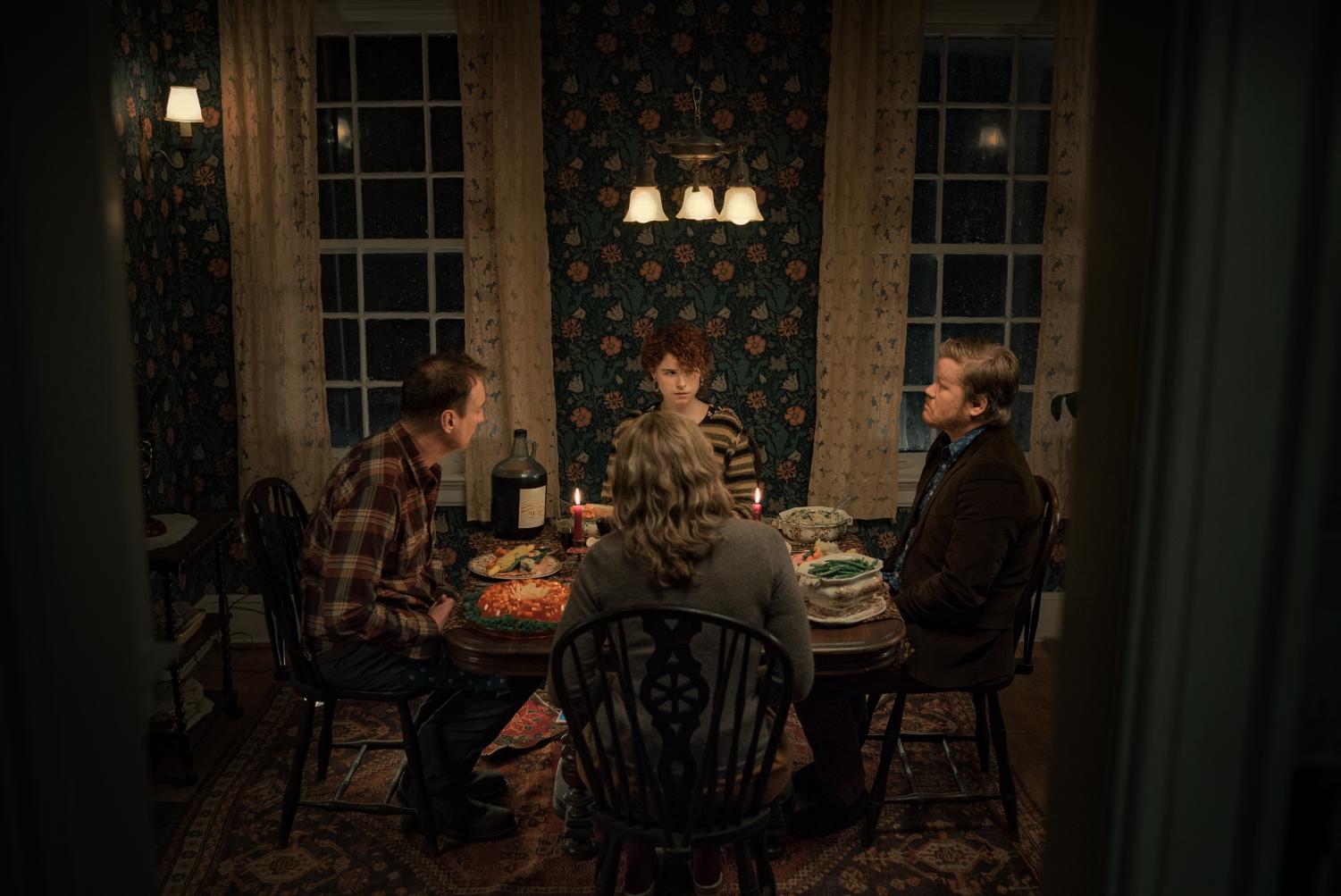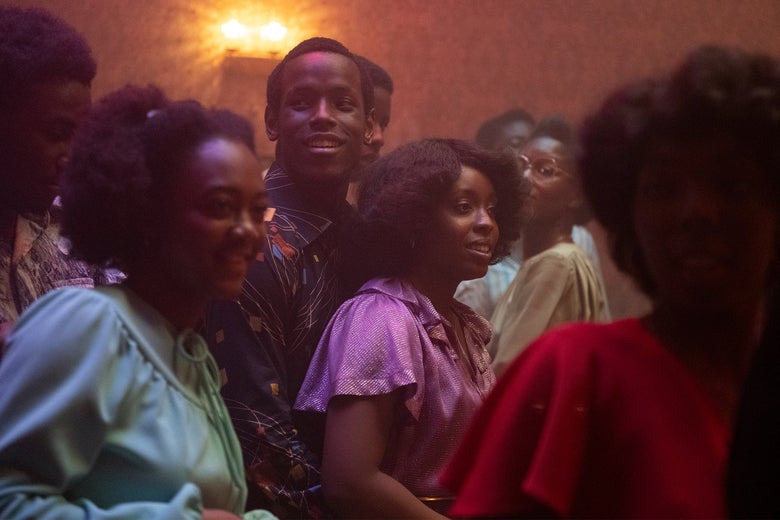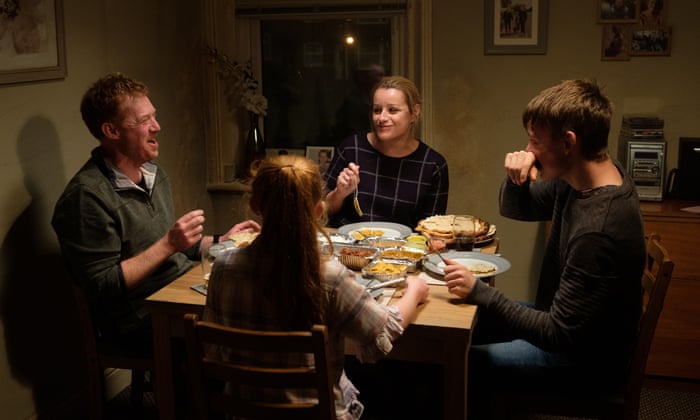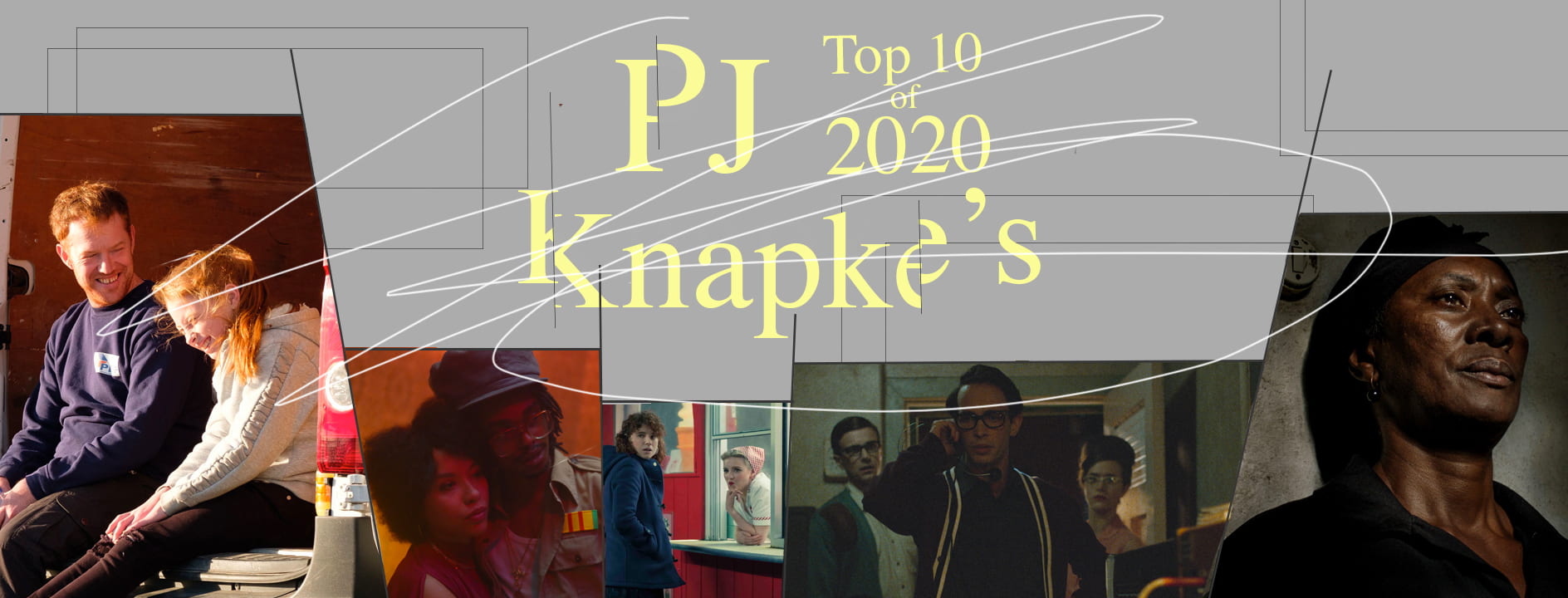In the introduction to my top 10 list from last year, I was brimming with enthusiasm about the year’s cinematic haul. I had an endless supply of motivation to see everything I could from that year, and as a result I had the luck of finding many films that I will surely remember as longtime favorites. This article was published in January of 2020, and just about 2 months later, our new reality of everything being bad all of the time in just about every way began. It says a lot about a year when it has become such a cliché to say what a horrible year it was, and with 2020 that is just about all you can say. This new reality sees us experiencing once in a century weather events every 6 months, the billionaire class looting trillions of dollars of wealth from the working class of this country and the world, and a government which has shown little to no interest in mitigating the pandemic or helping its citizens in the meantime as we close in on a year of COVID and hundreds of thousands of lives lost. Near the bottom of the priority list in regard to the many depressing ways in which this past year or so has changed our lives is how it has affected the movie industry. Theaters closed, hordes of movies got pushed back into oblivion, and the strength of the year’s releases was just simply far lower than the excitement that the past 3 years have brought, especially to me in particular.
Despite all of this, I would be remiss if I acted as if I didn’t have the pleasure of discovering and enjoying a plethora of fantastic films from throughout the past year. Unfortunately, even with the restricted release schedule of the past year, I most definitely didn’t catch it all, and I wish I could have gotten to films like Dear Comrades!, Collective, Possessor, and And Then We Danced before putting this list together. To go along with this, it goes without saying that a list of 10 films in a collection of many dozens more watched in a year will live many laudable films off of the list, and the honorable mentions I would most like to highlight before the real list are Another Round, Martin Eden, Wolfwalkers, The Sound of Metal, and Tenet.
10. The Metamorphosis of Birds (Catarina Vasconcelos, 2020)

This film is, surprisingly enough, the first of two Portuguese films which managed to crack my top 10 for this past year. Being that they are only two films from Portugal I have ever seen, I can safely say that this development was quite unexpected to say the least. Spawning through three generations of her own life, Catarina Vasconcelos’ The Metamorphosis of Birds moves like an art installation in truly the most experimental sense. An unorthodox documentary that weaves some fictional elements into its grander familial narrative, it exists as a singular sensory experience that is as personal as it is poetic. Using up details that conjure up an original, extremely poignant metaphor for memories, Vasconcelos follows part of her life through visual fragments. It’s almost like she pieces together disjointed elements of her journey to date with voice over narration that harkens back to an era she must have heard of; giving it a visual flair of how they would be seen through a lens in posterity. Watching the film is like rummaging through a very personal family album. It makes you emotional, makes you happy, and, eventually, helps you grow and become acquainted with the inescapable melancholy that comes with the passage of time. It is by far the most structurally unique and visually rich film I had the pleasure of seeing in 2020, and will live on as a hidden gem that I will forever treasure uncovering.
9. First Cow (Kelly Reichardt, 2020)

Lauded director Kelly Reichardt evokes the wilds of the Oregon Trail in this stunning, fable-like tale about the origin of the American Dream on its frontier. Good-natured, lovingly paced, and timidly realized, the story takes its sweet time setting in motion the mystery of its opening, in which a woman and her dog unearth two skeletons, side by side, hand in hand. The story that unfolds is about the unusual friendship these two unknowns forged during their mortality. From this haunted opening we time travel back to an era when the skeletons were flesh-and-blood frontiersmen, foraging their way through untamed America with nothing but the currency of cow’s milk to keep them afloat. The cow in question, it turns out, belongs to an upper-crust aristocrat, whereas these men, a lower crust trader and his new Chinese immigrant friend, scour night after night to steal its milk in order to make and sell their delicious “oily cakes” to weary workers and travelers. The result is an origin story of capitalism’s greed, desperation, and insatiable hunger, and here Reichardt’s tantalizing commentary is visualized in incredibly gentle and poetic terms. Their scheme, a broad mixture of business, fraud, hope, and trickery, is the kind of money-making scheme seeded in the soil of American enterprise. It’s the poor thieving from the rich, and the dishonesty needed to survive in a wild and unforgiving world too shapeless to realize the immoral depths of where America will evolve some 200 years later. In the end, it is a beautiful and profoundly subtle story about the universal struggle to make ends meet, find success, and the unlikely connections that we make along our journeys. The specificity of its environment is unbelievably captivating, and although it may feel too stripped back for many, I found myself utterly charmed by its intimacy and tenderness.
8. Vitalina Varela (Pedro Costa, 2020)

The following is an excerpt from my Film Club review:
The film’s plot revolves around an aging Cabo Verdean woman named Vitalina Varela, who arrives in Lisbon just three days after her husband’s funeral, after waiting for several decades for her plane ticket over. Immediately after stepping off the plane, barefoot and alone, she is greeted by no one except a member of the plane’s cleaning crew, who whispers to her: “There is nothing for you here in Portugal.” These words are the first of the film’s generally sparse dialogue, which rarely exceeds the volume of a whisper. Despite immediately experiencing only quiet hostility and tragedy upon arrival, Vitalina decides to stay and make her late husband’s home her own, hoping to make sense of his last days as well as her own last few decades of absence. Simultaneously, the local priest (played by Ventura, a frequent collaborator of Costa’s) battles with his own faith in quiet desperation, wandering through the streets in the darkness until his path crosses with Varela’s. Although it is undoubtedly a narrative feature and not a documentary, much of the film’s story actually weaves together fact and fiction throughout. In fact, the titular Vitalina Varela is played by, well, Vitalina Varela herself, and the events just described as the film’s narrative actually happened to her in real life, with Varela and Costa even co-writing the film together. In many ways, this sort of story is a continuation of Costa’s approach to filmmaking as well as his oeuvre as a whole, as his career has been largely defined by not only his raw portrayal of the perspective of the marginalized (especially in specific regard to Portuguese colonial history), but also a rebuke of art for art’s sake, and an embrace of film as work or labor. For Costa, the stories are not his, and he makes no attempt for them to be. By all means, Vitalina Varela is Vitalina Varela’s film.
You can read my review of Vitalina Varela here.
7. Beanpole (Kantemir Balagov, 2020)

Upwards of 25 million people in the Soviet Union died during the Second World War. Operation Barbarossa, the Nazi invasion of the Soviet Union during the war, left the country with untold devastation, with endless cities and villages burned to the ground and millions of citizens slaughtered or left to starve. Over 3 million Soviet POWs were murdered by the Nazis, and thousands more Soviets were sent to the concentration camps. And yet, despite all this unimaginable destruction, the nation turned the tide and almost single handedly won the war for the allies in Europe. In Kantemir Balagov’s Beanpole, we pick up the narrative in Leningrad — the site of the battle now known as the turning point of the war, where the Soviets suffered over 3 million casualties — with the titular Beanpole, an abnormally tall Russian nurse working in a hospital for severely wounded veterans while taking care of a child in her small apartment on her own. Although the film does not portray the devastation I previously described, its existence hangs over the city she lives in and the film as a whole in a brutally stark manner. Beanpole, who served on the Eastern front as one of Red Army’s female anti-aircraft gunners, was discharged as a result of a form of PTSD in which she frequently experiences episodes in which she involuntarily freezes up entirely for a few moments. Eventually, her condition causes a truly disastrous event to occur, which drives the rest of the film. If I am being totally honest, Beanpole is an immensely bleak film. It contains two of the most emotionally unbearable scenes to watch I’ve ever seen in a film, and the reality it is situated within is one dominated by suffering and loss. You can almost feel the chills of the frigid Russian winter blowing through the screen as the characters on screen go through their lives, inundated by suffering and desperate to find something to warm their lives. It is simply a new addition to the annals of great hopeless cinema, a stark portrayal of lives destroyed by a war that wreaked endless havoc, leaving only tattered lives hanging by a thread behind.
6. Bacurau (Kleber Mendonça Filho, Juliano Dornelles, 2020)

Bacurau is a film of two halves. The first half of the film makes it out to be a Brazilian social drama, observing the cultural traditions and impoverished conditions of the people in the titular town. We learn that these conditions have largely arisen at the hand of the corrupt outsider mayor, who seemingly shows an open disdain toward his constituents even while asking for their vote. The film places great focus upon elements of local history and the strange beauty of the Sertão’s (a sort of backcountry region in Northeastern Brazil) landscape, characterized by desert valleys and mountain vistas. Gradually, the citizens of Bacurau begin to realize some strange things. They no longer get cell service. Their town no longer shows up on the map. Then, at about the halfway point in the film, there is a major revelation, and the tone and genre of the film shifts completely into something new. It would be a spoiler really to say anything else, and given the greatness of this film, that is the last thing I want to do. As a result, it is very difficult to talk specifically about all of the amazing things about this film. All I will say is that its storytelling and thematic focus is deeply rooted within Brazil’s complex economic and political history, and the film’s ideological convictions largely emerge from the current fascist regime in power and the nation’s long history of Western interference within its borders. To go along with this, it is a fantastically weird film that revels in the strangeness of its cinematography and the culture it portrays on screen. It is truly an impressive achievement of thematic expression, political commentary, and genre bending that makes Bacurau truly one of a kind.
5. I’m Thinking of Ending Things (Charlie Kaufman, 2020)

I’m Thinking of Ending Things, noted writer and director Charlie Kaufman’s latest film, is a visual abstraction of living in the world in isolation, trapped in the prison of the mind. Yet, all that seeps through the bars is only that which you can see from a distance, the absorption of that which we see and the resulting breaking down of the internal barriers of the psyche. The lines of demarcation around the self fade away as we become a nebulous representation of our own registered histories of sensory input and cultural consumption. All that’s left is to fantasize, to combat the regret and the secretion of one’s self with something we create in our minds. Yet, even here, our natures will it so that the fantasies cannot even escape the realities of our hopelessness, becoming subsumed by the unconscious and unbearable cosmic dejection of routine and isolated existence.
Honestly just an absolutely incredible film. Kaufman’s absurd and ominous abstractions really speak to me in a way that a lot of other films that exist in a relatively similar vein of the avant-garde do not. Each little abstraction always feels pointed and purposeful, regardless if it is something that you will never understand the meaning of even after countless rewatches and reflections. I feel like his works are able to retain a seemingly paradoxical sense of ambiguity and a sense of heightened specificity all at the same time, and this film is no exception. It really allows for a great amount of personal interpretation while still truly achieving what the film set out to, which I think is great, especially since the way I ended up interpreting the film could be completely different from Kaufman’s original intention or whatever and I really have no idea. Lukasz Zal’s cinematography is really fantastic as well, even just the way that some of the stationary conversational sequences are structured visually is extremely intriguing. As an examination of a psyche beaten down by isolation and the dangers of hyper-interiority, viewed through the prism of strange, sometimes funny, and sometimes terrifying visual abstractions, it stands as an endlessly fascinating and striking film that perhaps only Kaufman could make.
You can read Piper Coyner’s review of I’m Thinking of Ending Things here.
4. The Vast of Night (Andrew Patterson, 2020)

Andrew Patterson’s debut film The Vast of Night is like a ghost story told around a campfire. One that puts you on the edge of your seat, goosebumps slowly building and your heart racing faster and faster as the storyteller gets to the climax. Much like the warmth of the flames on your face and the shivering chill of the wind on the back of your neck around the fire, it’s a feeling that combines a sense of nervous anticipation and boundless wonder and intrigue. Above all else, it is the frightful excitement of the unknown. Set in the 1950s in a small New Mexico town, the film follows Fay — the town switchboard operator — and Everett — the town radio DJ — as they scramble to uncover the mystery behind a strange and potentially extraterrestrial audio frequency. The premise is simple enough, and there’s little grander thematic importance or poignant depth to film at all. Instead, the film is a pure and specific emotional experience that is utterly enthralling, and an amazing reminder of the simple life-enriching experiences films can be. The primary factor that allows the film to achieve this is its pacing. Throughout most of the film, the events of the story move at a breakneck pace, with Fay and Everett endlessly running around the eerily-lit nighttime streets of their little town. Oftentimes this pace is amplified by the film’s usage of long takes, which despite often being used as trite glamor pieces in many independent films of this era, are utilized with great purpose to more physically render the speed at which the story intends to unfold. Yet, interspersed throughout this tempo are various moments where all momentum just stops dead in its tracks for just a few instants, and in these moments the film translates a sense of awe that feels just like the good part of the story around that campfire. Unlike some of the other films that populate this list, The Vast of Night is a fairly simple film that stays well within a very specific set of storytelling and thematic boundaries on the surface. Even so, if you want a film that will purely make your heart race with excitement and pull you to the edge of your seat, there is no better choice from 2020.
3. Lover’s Rock (Steve McQueen, 2020)

If it weren’t for Steve McQueen’s Lover’s Rock, I would have said that my previous pick on this list would undoubtedly be the most enjoyable film of the year. However, no film this year has come close to the sheer delight that this one exudes for very long stretches of its short runtime. The film was released as one of five films of the Small Axe anthology series, and revolves around two young West Indian lovers who meet at a 1980s London house party. Over the course of the film’s short 70 minute runtime, it focuses entirely upon the buildup/preparation for the party and the party itself, acting solely as a celebration of British black culture and black love all purely in the moment. Even as sudden interruptions of the outside world attempt to creep in and unbalance the atmosphere, the film holds course, keeping its eye held upon the rhythmic communal sensory expression throughout. McQueen seems to have this innate ability to stretch out these moments and simply hone in on the movements and textures that make the environment feel incredibly warm and vibrant. Most of all, however, the thing for me that acts as the soul and the root of all of the film’s greatness is its brilliant soundtrack. Layered throughout with reggae songs from the 60s, 70s, and 80s from legends like Scratch Perry and Dennis Brown, the entire soundscape of the film is inescapable in its charm and I couldn’t help but be completely wrapped up in its rhythms. In fact, this film and the Small Axe anthology as a whole is filled with an abundance of amazing songs from the period rife for discovery, as well as loads of the classics to tie it all together. All in all, Lover’s Rock is by simply bar none the most fun I had watching a movie this year, and it only helps that it’s impeccably made by one of this generation’s best filmmakers.
2. Never Rarely Sometimes Always (Eliza Hittman, 2020)

Both of my top two films of 2020 are relatively straightforward social dramas that are largely concerned with a grander political theme. Neither are remotely glamorous, or preachy, or anything beyond the story they intend to tell, and yet both are absolutely astonishing films. The first of these films is Eliza Hittman’s Never Rarely Sometimes Always, a simple story about a 17 year old girl named Autumn from conservative working class Pennsylvania who must travel to New York City in order to get an abortion without her parents knowing. She is accompanied by her cousin, who makes enumerable sacrifices throughout the journey as the two girls come across many dangers and setbacks along the way. Instead of the loud heroism that a more Oscar bait-y film may have twisted the narrative into, Hittman’s portrays victimization. There is no glamorization of any part of the journey. There is no catharsis or final goal to achieve and celebrate at the end. Instead, throughout the whole journey, the girls simply want it to be over. In many ways, the film is like a modern iteration of Italian neorealism in its tenderness and hyper focus on the stories of the poor and downtrodden, with some incredibly grounded performances that elevate the emotionality of many of the film’s most impactful sequences to levels it undoubtedly could not achieve otherwise. The resulting emotional effect is rather difficult to put into words. The film is simply an unbelievable representation of how the slow erosion of reproductive rights in this country directly affects those who most need them, and that makes it one of the best films of 2020.
1. Sorry We Missed You (Ken Loach, 2020)

In the most recent election in November of 2020, California passed a ballot measure known as Prop 22. This measure shielded the major gig economy corporations like Uber, Doordash, Lyft, and Instacart from having to treat their workers as employees, allowing them to forego providing any sort of benefits, time off, or even a minimum wage. Being that companies like Uber lose billions of dollars every year, their future model for profit almost entirely rides on the complete elimination of labor rights, hence why these companies spent over $200 million on a propaganda campaign to get the measure to pass. And as always in America, capital always wins. So far, the measure has been such a success that big money is already being spent by these corporations to bring similar measures to states like Illinois and New York, and it has become abundantly clear that we are on the precipice of Prop 22 becoming the new national standard. This reality is not some sudden realization. Union membership has plummeted in the US since the 1960s, while wages have remained stagnant and the price of education, housing, and healthcare have risen exponentially. Each economic crisis of the past 40 years has resulted in a massive transfer of wealth from the poorest classes to the richest; in fact the COVID-19 crisis has been a massive cash cow for the word’s wealthy.
Legendary director Ken Loach’s latest film, Sorry We Missed You, distills all of this anxiety and economic degradation into a simple family drama. The story follows a working class family of four in the North of England, where both the mother — a home care nurse — and the father — a parcel service driver — are forced into the gig economy. We learn that after the financial crisis of 2008 and the collapse of the Northern Rock bank, they lost the chance to buy a house and have been forced to rent ever since. The father works for an Amazon-like parcel service, where — much like in Prop 22 — he is designated as an “independent franchisee,” who is forced to work upwards of 14 hours a day every day while being constantly gauged for endless fees from his parent company. The mother works as a gig home care nurse for the elderly and disabled, who is forced to sell her car so that her husband can afford to purchase a van for his work, and is forced to work sunrise to sunset just to help make ends meet. The result of this unbearable situation is an ever-increasing strain on the lives of everyone in the family, including their young daughter and troubled teenage son. The film has no flashy cinematography, performances, or narrative devices. Instead, it is an extremely straightforward depiction of the oppressive chokehold that capitalism places the working class within. It shows the insurmountable strain that endless bills, overly long hours, and overwhelming financial insecurity puts on anyone forced to suffer through them, most of all families. Throughout the film we see glimpses of how beautiful a family they really are, and the patience, joy, and laughter that can be shared between them during the few times which they are allowed to breathe. The empathy that the camera has for these people is truly palpable. Yet, the excruciating pressure of capitalism over them is something they can simply never escape. As a whole, the film is a brilliant, heartbreaking, and rage-inducing story of capitalism in the modern age, and how it entirely overwhelms the working class and threatens their survival. I believe it is a legitimately essential film that is by far the best of 2020.
